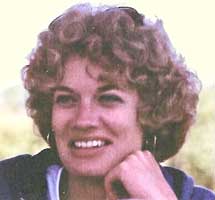Desi Nesmith, who grew up in Bloomfield, Conn., was honored with an Alma Exley scholarship in 2000 and went on to receive bachelor’s, master’s and sixth-year degrees from the University of Connecticut. He began his career in 2002 as a fifth grade teacher in East Hartford. Since then, he has been succeeding in positions of broader responsibility in education, and he has been giving back by serving on the selection committee of the scholarship program. Posted August 19, 2008.
To say the Alma Exley Scholarship had an impact on my career would be an understatement. Shortly after receiving the award I realized that it was more than just a financial blessing, but a gift that keeps on giving.
When I began my teaching career at Mayberry Elementary School in East Hartford in 2002, I quickly realized the potential impact that I could have as a teacher of color on all of my students. It was the first time many of my students had a teacher of color. I saw an opportunity here to present myself to them as more than their classroom teacher, but as a positive role model that they could look up to.
It is important for students to see professionals who look like them. It helps to give them a sense of what they can become with hard work and diligence. When my kids had concerns — whether it be issues in school or problems going on in their home — they came to me for guidance because I took the time to make those personal connections with them. I took that responsibility very seriously.
After being recognized as Teacher of the Year in 2006 at Mayberry Elementary School in East Hartford, I was asked to be a Teacher in Residence at the Connecticut State Department of Education in the School Improvement Unit. There I worked with priority school districts around the state and on various state department initiatives such as the Connecticut Accountability for Learning Initiative. At the end of the year the Connecticut State Board of Education recognized me for my contributions to the profession of teaching.
The following year I was offered a job in the office of the assistant superintendent in Hartford, where I work with teachers modeling and sharing best practices. While there, I am serving on the steering committee for Powerful Practices for Change and Reform, a research-based process that is being implemented with a cohort of elementary schools to improve student achievement. Most recently I have enrolled in the University of Connecticut’s administrators preparation program, which will enable me to become a building principal.
The successes that I have had thus far can be attributed to having a strong support system that includes the Exley family and the family of recipients who have joined the ranks as Exley Scholarship award winners. Woody Exley has followed my career each step of the way, and we regularly stay in contact with each other. My aim has been and continues to be to make the Exley family proud of the decision they made to embrace me all those years ago.
